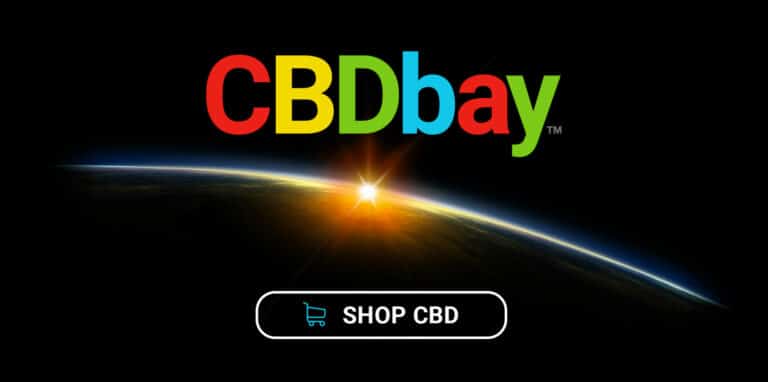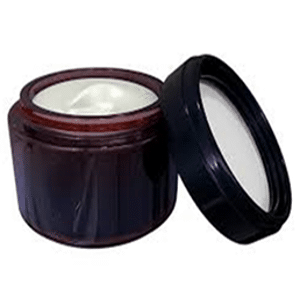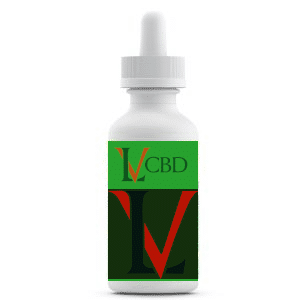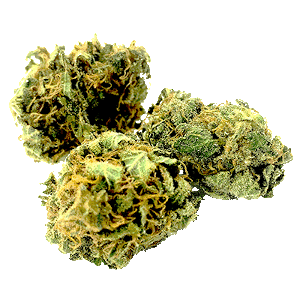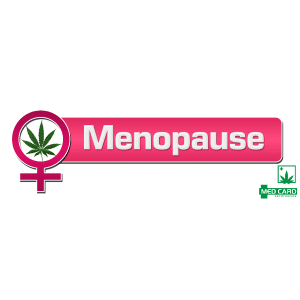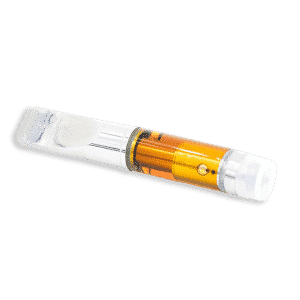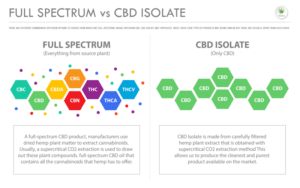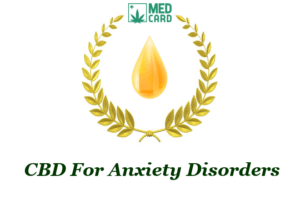
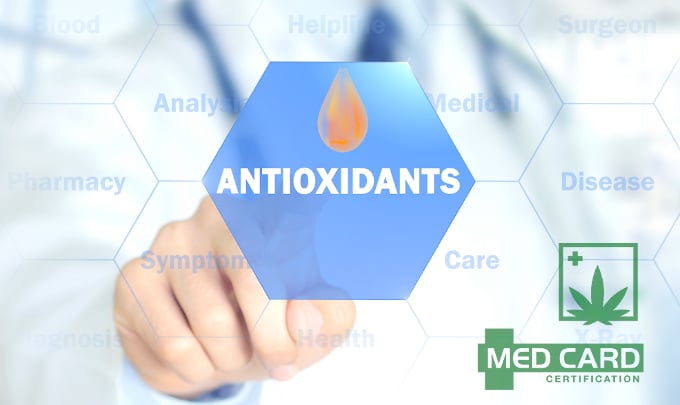
The powerful antioxidant properties of CBD
- CBD’s antioxidant properties have been strongly confirmed by researchers.
- What exactly is an antioxidant?
- What role does CBD play in helping the body destroy dangerous compounds known as free radicals that can cause diseases including cancer?
In this post, we’ll examine the processes and causes of oxidative stress and take a look at how CBD helps to counteract the process.
CBD, the non-intoxicating compound produced in the resinous flower buds of the cannabis plant, is one of the most powerful antioxidants known to science.
What’s an antioxidant, you might be asking. Antioxidants are actually one of the most important components of a healthy diet. Without them, the human body would quickly descend into chaotic decline.
Interestingly, CBD’s antioxidant superpowers are a whole ‘nother aspect to the healing power of cannabis aside from its famous effects on the human endocannabinoid system. (We’ll talk about the ECS more in a moment.)
While cannabinoids can help treat conditions such as pain, sleep disorders, anxiety, as well as neurodegenerative conditions, they also have the ability to destroy bad compounds circulating through our bodies known as free radicals that can cause disease.
Free radicals can create a wide variety of problems for the human body from cell death to cancer-causing DNA damage.
Let’s take a look at this process of oxidation and how CBD oil can help to reduce oxidative stress on the body.
Fighting disease with antioxidants
The word “oxidation” is merely the scientific term for the same processes that cause metals to rust. When molecules in certain types of metals bind with oxygen molecules it creates “oxides” — the powdery film that turns old copper pennies a greenish hue, (copper oxide) and old iron nails a ruddy brown (iron oxide). If uninterrupted, this process will continue until the metal is gone. And the same goes for human beings.
In much the same way as oxides develop on metal, molecules inside cells in the human body can also oxidize when exposed to compounds called free radicals. This process is also commonly referred to as oxidative stress.
Oxidative stress can have extremely damaging effects resulting in premature aging, heart disease, stroke, and even cancer. Free radicals can also cause damage to nerves contributing to conditions such as MS, Parkinson’s disease, and Alzheimer’s disease.
When the body’s cells generate energy, they naturally create waste products. Some of these waste products become free radicals. Other factors, such as smoking, as well as exposure to pollution and other environmental toxins, may also cause oxidative stress.
The human body produces antioxidants naturally, but not at levels high enough to keep us healthy. Fortunately, oxidative stress in the body can be inhibited by eating healthy foods containing antioxidants.
Many vegetables and fruits contain antioxidants. Coffee, chocolate, red beans, berries, spices, nuts, and myriad other fruits and veggies contain high levels of antioxidants.
Simply put, rather than causing damage to your cells, free radicals instead bind to these antioxidants. This process renders free radicals harmless thus protecting your cells from dying an early death or becoming cancerous.
For optimal health, foods high in antioxidants — such as CBD-rich hemp extracts — should be consumed on a daily basis.
CBD is a powerful antioxidant
Normally, when we discuss the medicinal properties of CBD the topic turns to the human endocannabinoid system (ECS). This is a complex system of neurochemicals and receptors naturally present in the human body. The ECS is responsible for regulating a wide array of functions from appetite to sleep to mood regulation and much more.
However, supplementing the ECS is not CBD’s only trick when it comes to keeping human beings healthy.
CBD is also widely known to be a highly potent antioxidant. Vitamin C has always been considered to be a powerful antioxidant. However, studies show that CBD may well have superior antioxidant properties to vitamin C.
Interestingly, a U.S. Government Patent (#1999/008769) backs up these claims. The patent declares that cannabinoids “act as free radical scavengers for use in prophylaxis and treatment of disease.”
The patent states:
“This invention provides antioxidant compounds and compositions, such as pharmaceutical compositions, that include cannabinoids that act as free radical scavengers for use in prophylaxis and treatment of disease. The invention also includes methods for using the antioxidants in prevention and treatment of pathological conditions such as ischemia (tissue hypoxia), and in subjects who have been exposed to oxidant inducing agents such as cancer chemotherapy, toxins, radiation, or other sources of oxidative stress.”
Several lab studies also back up the claims in the patent.
A study performed in 1998 by the National Institutes of Mental Health in conjunction with the National Cancer Institute clearly demonstrated the antioxidant potential of CBD.
In this study, rats were exposed to toxic levels of a neurotransmitter known as glutamate that is known to be inhibited by antioxidants. Researchers found that both CBD and THC (the cannabinoid found in marijuana that causes a high) prevented damage from toxicity as well or better than common antioxidants.
A couple of years later, in 2000, a follow-up study was initiated by the National Institute of Mental Health. Researchers found that cannabinoids inhibited oxidative processes in neuronal cultures (nerves grown in petri dishes). Again, in this study CBD was shown to provide superior protection to other common antioxidants.
Then in 2007, the Department of Human Physiology and Pharmacology undertook another study on live animals. The research was performed at the University of Rome, in conjunction with the Departments of Psychiatry and Experimental Pharmacology at the University of Naples, Italy. Results once again confirmed CBD’s antioxidant properties.
Using CBD as an antioxidant
There are numerous ways in which the antioxidant properties of CBD can be harnessed. Two of the more common ways that CBD can be used for its antioxidant properties include internally, via oral delivery methods, and topically — meaning directly on the skin.
Topical CBD preparations are essentially skin creams that have been infused with purified CBD. Being exposed to the outside world, our skin is especially susceptible to oxidative stress from the sun and environmental pollutants. There is a high likelihood that CBD-infused skin creams can help to inhibit oxidative stress thereby preventing premature aging and even potentially skin cancer.
Oral applications of CBD such as CBD oil capsules or CBD-infused edibles deliver CBD’s antioxidant powers to the entire body. The liver, kidneys, lungs, and other major internal organs can all benefit from CBD’s oxidation-inhibiting powers.
Where to purchase CBD products
After years of hemming and hawing, the United States federal government legalized the production and sale of hemp-derived CBD oil at the end of 2018. Since that time, nearly every state in the U.S. has set out regulations for the legal production and sale of CBD.
Although laws vary from state to state, for all intents and purposes, all Americans now have access to high-quality CBD products either locally or online.
On the local level, CBD oil and other CBD-infused products can be found at a myriad of CBD specialty stores that have cropped up in the past few years. It’s also now a common item at health food stores, pharmacies, convenience stores, and even gas stations.
CBD products are now being sold by quite a few major retailers such as CVS, Walgreens, Wholefoods, and Walmart. However, none of these retailers offer CBD oils, CBD-infused edibles, CBD vape pens, or smokable forms of CBD.
Because the FDA frowns upon the use of CBD in edibles, the big chains generally only stock topical creams and sprays from a very limited number of brand names.
If you’re looking for a wider selection of products and brands you’re better off ordering CBD online where the product selection is vast.
Be aware, however, that not all online sellers are legit. And not all CBD manufacturers test their products for purity and potency. So be sure to do your homework to find a brand that you can trust.
Any legitimate CBD manufacturer will offer what’s known as a COA, or certificate of analysis which shows that the product has been tested. The COA will also include the exact levels of cannabinoids and other compounds found in the product.
Although there are some shysters out there, there are also plenty of upstanding CBD companies offering high-quality CBD products online. You can find several of them here.
Sources and additional reading
-
- Is Cannabidiol the Next Clinical Antioxidant?
- Antioxidative and Anti-Inflammatory Properties of Cannabidiol
- Cannabidiol as an Antioxidant
- Comparison of Antioxidant Activity of Cannabidiol (CBD)
- Cannabinoids and Oxidation
- Neuroprotective Antioxidants from Marijuana.
- Cannabidiol as an Emergent Therapeutic Strategy for Lessening the Impact of Inflammation on Oxidative Stress
- Cannabidiol and (−)Δ9-tetrahydrocannabinol are neuroprotective antioxidants
- Cannabidiol in vivo blunts beta-amyloid induced neuroinflammation by suppressing IL-1beta and iNOS expression – PubMed


